Featured Articles
Kovalev Seeks Rare Chance at Redemption against Alvarez
Four of the most iconic fighters in boxing history had to do it and they did. Joe Louis’ career hinged on it, Sugar Ray Robinson
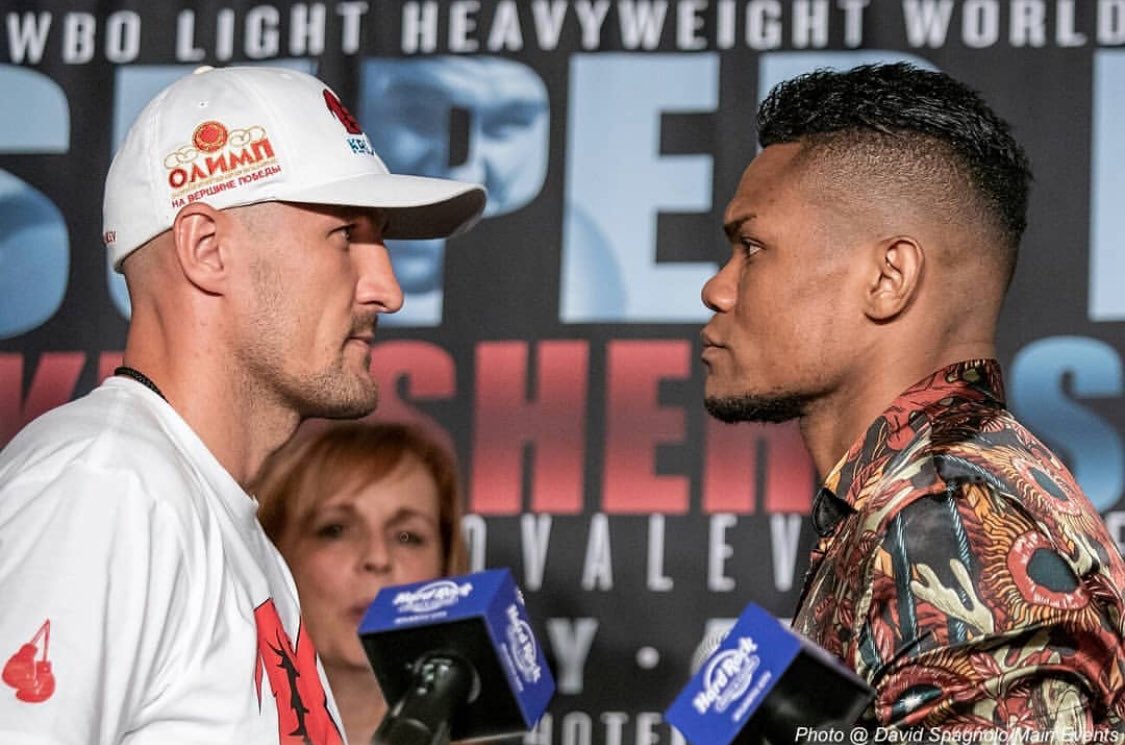
Four of the most iconic fighters in boxing history had to do it and they did. Joe Louis’ career hinged on it, Sugar Ray Robinson did it against his career rival and so did Muhammad Ali and Sugar Ray Leonard, and that’s exact revenge over the first fighter to beat them. Had Louis not defeated Max Schmeling, had Robinson lost again to Jake LaMotta, had Ali tripped again over Joe Frazier’s left hook and had Leonard not boxed smartly instead of brawling with Roberto Duran in their rematch, their legacies would be entirely diminished and different today for obvious reasons.
Seldom do fighters fail in the rematch against the first fighter to beat them and then get a chance to revitalize their career if they can beat the second man to defeat them. Well, that’s exactly what former two-time light heavyweight title holder Sergey Kovalev 32-3-1 (28) will be confronted with when he meets up again with Eleider Alvarez 24-0 (12). As widely reported, Kovalev will be exercising the clause in his contract that stipulated if he lost to Alvarez when they met on August 4th, he had the right to an immediate rematch. Kovalev-Alvarez II is tentatively scheduled for this coming February.
Kovalev was up on all three judges’ cards (58-56 and 59-55 twice) going into the seventh round when he was dropped three times and stopped at the 2:45 mark, suffering his third career setback to only the second fighter to defeat him. It seems almost a lifetime ago when Kovalev was often listed among the top five pound for pound fighters in boxing heading into his showdown with another pound for pound stalwart, Andre Ward. That was back in November of 2016 and the clash with Ward was seen pretty much by all as a pick’em going in. The bout went the distance and Kovalev lost a somewhat controversial unanimous decision (I had Kovalev winning by a single point) and since then the wheels seem to have come off regarding his career. When they met seven months later Ward was better and adjusted his attack, working Sergey’s body and rough housing him, and in the eyes of many he exposed a fatal flaw in Kovalev, namely that he seems to come unglued when things turn against him and he must fight through adversity.
Ward stopped Kovalev in the eighth round of the rematch with Ward up slightly on two of the cards with the third favoring Kovalev by a point. Instead of disappearing, Kovalev fought five months later and won a regional belt stopping Vyacheslav Shabranskyy in the second round and followed that up four months later stopping Igor Mikhalkin in the seventh round to win the WBO light heavyweight title. In his first defense, he risked his title against Alvarez.
Favored at odds as high as 6/1, Kovalev started slowly but came on starting in the third and had a big fourth that had Eleider covering up in retreat. During the fifth and sixth rounds, in spite of not looking like the killer he was pre-Ward, he seemed to hit his stride and was controlling the fight….however, Alvarez was occasionally beating him to the punch with his accurately placed one-twos. Then in the seventh round Alvarez dropped Kovalev with a big right to the temple over Kovalev’s low left. Kovalev took the mandatory eight-count and was quickly dropped again with a left-hook to the face. Again he beat the count but was on unsteady legs and as soon as he resumed fighting Alvarez cuffed him with a right and short left hook combo that had him down again and the bout was correctly stopped.
Kovalev no doubt rationalizes the loss as just getting caught like so many other fighters of his caliber before him. He’ll no doubt focus on the fact he was winning and that in boxing anyone can get caught, but it isn’t quite that simple. And in Sergey’s case the mental aspect is every bit as much a factor as the physical part.
After realizing by the end of their first fight that Andre Ward wasn’t intimidated by him and then actually being bullied by Ward in the rematch, Kovalev’s mental cloak of invincibility was shattered. We saw that happen with Mike Tyson after Buster Douglas and with Roy Jones after being knocked out by Antonio Tarver in their rematch. In Kovalev’s case, he appeared to be on the right track in his two bouts after his second defeat to Ward, but then again he wasn’t fighting elite opposition.
Against Alvarez he took a few clean shots early but again settled into fighting his fight. But when he couldn’t really put any hurt on Eleider during the fourth and into the fifth round, he seemed to lose a step and whenever Alvarez landed clean, you could see Sergey was trying to shield that he was bothered by it and felt it wasn’t happening by accident or luck. And once he was dropped by the first big right hand you knew he’d never survive. And having experienced that, the mountain will be tougher to scale in the rematch. Gone is the myth he forced on himself after the second Ward clash that it was a quick stoppage and the referee was against him. He knows Alvarez beat him and he can’t lie to himself about it.
What makes his task so monumental this time is the same thing he had to overcome against Ward for their rematch, and that is stylistically Kovalev can only fight one way and he can’t change that and making things worse is that Alvarez knows it. In order to deliver his power, Sergey must dictate the fight, pushing the action forward. Ward used that against him and there’s no doubt Alvarez will too the second time around.
Kovalev’s problem is one that all attackers have when they finally run into an opponent who makes them pay too big a price for their aggression. Sergey’s lack of good head and upper-body movement and refusal to clinch makes him an easy target – couple that with Alvarez’s clearly faster hands and it unfolds with Sergey getting hit too much and too cleanly on the way in. And once he processes that he’ll have to come in more measured, that’s when Alvarez, no longer being under duress, can really sit down on his shots and unload on Kovalev.
Whenever an attacker faces a fighter who makes the price of getting inside too steep, and the attacker can’t change things up, the rematch is usually a rerun of the first encounter. As I often say, all the attacker can do is bring more of what didn’t work the first time. And now Alvarez knows he can change the fight with one shot and Kovalev knows he couldn’t end it when Alvarez was in trouble during the fourth round of their last fight. Also, there’s the question of Kovalev’s discipline and training habits and they may have already taken their toll and depleted him physically at age 35.
Unlike Louis, Robinson, Ali and Leonard, Kovalev lacks stylistic versatility. Alvarez is a better technician than Kovalev, and when the better technician wins the first time, seldom can the perceived puncher adjust and be a different beast in the rematch.
With Kovalev’s confidence eroded and him not being able to adjust to Alvarez’s style, it’s hard to paint a positive scenario for him. If he were to pull it off against an even more confident Alvarez in the rematch, he will have redeemed himself and his career lives on. But if he can’t, his legacy of being one of the more feared fighters of his era will most likely be forgotten….if it hasn’t been already.
Sergey Kovalev is in a tough spot. This is a fight he had no choice but to take. He’s run out of other chances; it’s not worth Kathy Duva’s while to give him any more confidence-builders. His marketability is shot and the only way to restore it is with a solid win over Alvarez.
Frank Lotierzo can be contacted at GlovedFist@Gmail.com
Check out more boxing news on video at The Boxing Channel
Featured Articles
Sam Goodman and Eccentric Harry Garside Score Wins on a Wednesday Card in Sydney
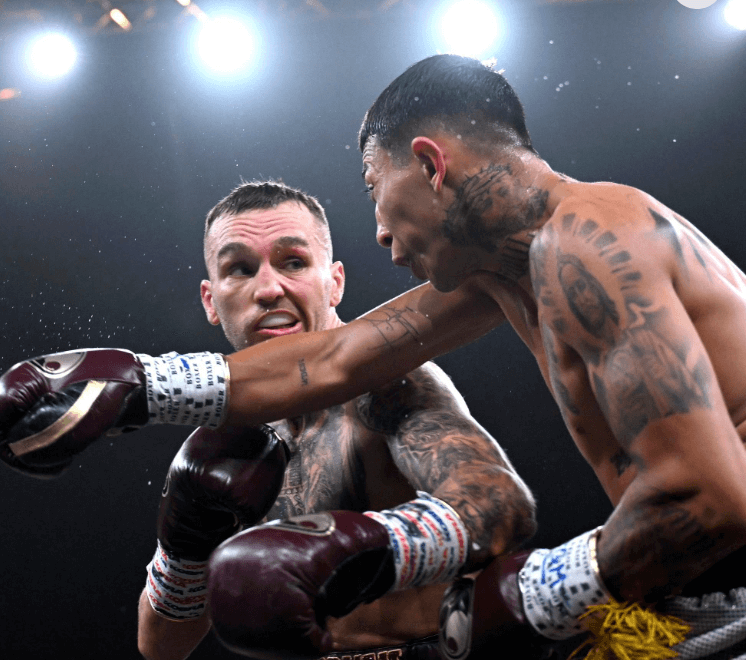
Australian junior featherweight Sam Goodman, ranked #1 by the IBF and #2 by the WBO, returned to the ring today in Sydney, NSW, and advanced his record to 20-0 (8) with a unanimous 10-round decision over Mexican import Cesar Vaca (19-2). This was Goodman’s first fight since July of last year. In the interim, he twice lost out on lucrative dates with Japanese superstar Naoya Inoue. Both fell out because of cuts that Goodman suffered in sparring.
Goodman was cut again today and in two places – below his left eye in the eighth and above his right eye in the ninth, the latter the result of an accidental head butt – but by then he had the bout firmly in control, albeit the match wasn’t quite as one-sided as the scores (100-90, 99-91, 99-92) suggested. Vaca, from Guadalajara, was making his first start outside his native country.
Goodman, whose signature win was a split decision over the previously undefeated American fighter Ra’eese Aleem, is handled by the Rose brothers — George, Trent, and Matt — who also handle the Tszyu brothers, Tim and Nikita, and two-time Olympian (and 2021 bronze medalist) Harry Garside who appeared in the semi-wind-up.
Harry Garside
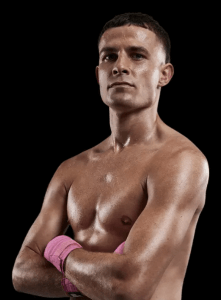
Harry Garside
A junior welterweight from a suburb of Melbourne, Garside, 27, is an interesting character. A plumber by trade who has studied ballet, he occasionally shows up at formal gatherings wearing a dress.
Garside improved to 4-0 (3 KOs) as a pro when the referee stopped his contest with countryman Charlie Bell after five frames, deciding that Bell had taken enough punishment. It was a controversial call although Garside — who fought the last four rounds with a cut over his left eye from a clash of heads in the opening frame – was comfortably ahead on the cards.
Heavyweights
In a slobberknocker being hailed as a shoo-in for the Australian domestic Fight of the Year, 34-year-old bruisers Stevan Ivic and Toese Vousiutu took turns battering each other for 10 brutal rounds. It was a miracle that both were still standing at the final bell. A Brisbane firefighter recognized as the heavyweight champion of Australia, Ivic (7-0-1, 2 KOs) prevailed on scores of 96-94 and 96-93 twice. Melbourne’s Vousiuto falls to 8-2.
Tim Tsyzu.
The oddsmakers have installed Tim Tszyu a small favorite (minus-135ish) to avenge his loss to Sebastian Fundora when they tangle on Sunday, July 20, at the MGM Grand in Las Vegas.
Their first meeting took place in this same ring on March 30 of last year. Fundora, subbing for Keith Thurman, saddled Tszyu with his first defeat, taking away the Aussie’s WBO 154-pound world title while adding the vacant WBC belt to his dossier. The verdict was split but fair. Tszyu fought the last 11 rounds with a deep cut on his hairline that bled profusely, the result of an errant elbow.
Since that encounter, Tszyu was demolished in three rounds by Bakhram Murtazaliev in Orlando and rebounded with a fourth-round stoppage of Joey Spencer in Newcastle, NSW. Fundora has been to post one time, successfully defending his belts with a dominant fourth-round stoppage of Chordale Booker.
To comment on this story in the Fight Forum CLICK HERE
Featured Articles
Thomas Hauser’s Literary Notes: Johnny Greaves Tells a Sad Tale
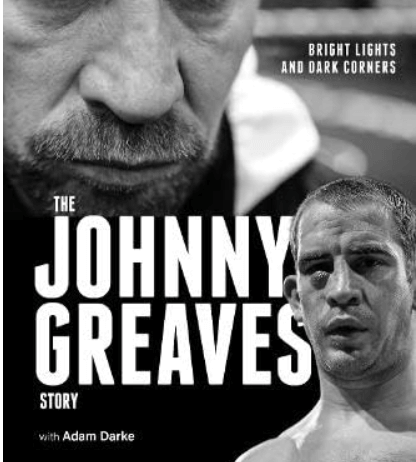
Johnny Greaves was a professional loser. He had one hundred professional fights between 2007 and 2013, lost 96 of them, scored one knockout, and was stopped short of the distance twelve times. There was no subtlety in how his role was explained to him: “Look, Johnny; professional boxing works two ways. You’re either a ticket-seller and make money for the promoter, in which case you get to win fights. If you don’t sell tickets but can look after yourself a bit, you become an opponent and you fight to lose.”
By losing, he could make upwards of one thousand pounds for a night‘s work.
Greaves grew up with an alcoholic father who beat his children and wife. Johnny learned how to survive the beatings, which is what his career as a fighter would become. He was a scared, angry, often violent child who was expelled from school and found solace in alcohol and drugs.
The fighters Greaves lost to in the pros ran the gamut from inept local favorites to future champions Liam Walsh, Anthony Crolla, Lee Selby, Gavin Rees, and Jack Catterall. Alcohol and drugs remained constants in his life. He fought after drinking, smoking weed, and snorting cocaine on the night before – and sometimes on the day of – a fight. On multiple occasions, he came close to committing suicide. His goal in boxing ultimately became to have one hundred professional fights.
On rare occasions, two professional losers – “journeymen,” they’re called in The UK – are matched against each other. That was how Greaves got three of the four wins on his ledger. On September 29, 2013, he fought the one hundredth and final fight of his career against Dan Carr in London’s famed York Hall. Carr had a 2-42-2 ring record and would finish his career with three wins in ninety outings. Greaves-Carr was a fight that Johnny could win. He emerged triumphant on a four-round decision.
The Johnny Greaves Story, told by Greaves with the help of Adam Darke (Pitch Publishing) tells the whole sordid tale. Some of Greaves’s thoughts follow:
* “We all knew why we were there, and it wasn’t to win. The home fighters were the guys who had sold all the tickets and were deemed to have some talent. We were the scum. We knew our role. Give some young prospect a bit of a workout, keep out of the way of any big shots, lose on points but take home a wedge of cash, and fight again next week.”
* “If you fought too hard and won, then you wouldn’t get booked for any more shows. If you swung for the trees and got cut or knocked out, then you couldn’t fight for another 28 days. So what were you supposed to do? The answer was to LOOK like you were trying to win but be clever in the process. Slip and move, feint, throw little shots that were rangefinders, hold on, waste time. There was an art to this game, and I was quickly learning what a cynical business it was.”
* “The unknown for the journeyman was always how good your opponent might be. He could be a future world champion. Or he might be some hyped-up nightclub bouncer with a big following who was making lots of money for the promoter.”
* “No matter how well I fought, I wasn’t going to be getting any decisions. These fights weren’t scored fairly. The referees and judges understood who the paymasters were and they played the game. What was the point of having a go and being the best version of you if nobody was going to recognize or reward it?”
* “When I first stepped into the professional arena, I believed I was tough. believed that nobody could stop me. But fight by fight, those ideas were being challenged and broken down. Once you know that you can be hurt, dropped and knocked out, you’re never quite the same fighter.”
* “I had started off with a dream, an idea of what boxing was and what it would do for me. It was going to be a place where I could prove my toughness. A place that I could escape to and be someone else for a while. For a while, boxing was that place. But it wore me down to the point that I stopped caring. I’d grown sick and tired of it all. I wished that I could feel pride at what I’d achieved. But most of the time, I just felt like a loser.”
* “The fights were getting much more difficult, the damage to my body and my psyche taking longer and longer to repair after each defeat. I was putting myself in more and more danger with each passing fight. I was getting hurt more often and stopped more regularly. Even with the 28-day [suspensions], I didn’t have time to heal. I was staggering from one fight to the next and picking up more injuries along the way.”
* “I was losing my toughness and resilience. When that’s all you’ve ever had, it’s a hard thing to accept. Drink and drugs had always been present in my life. But now they became a regular part of my pre-fight preparation. It helped to shut out the fear and quieted the thoughts and worries that I shouldn’t be doing this anymore.”
* “My body was broken. My hands were constantly sore with blisters and cuts. I had early arthritis in my hip and my teeth were a mess. I looked an absolute state and inside I felt worse. But I couldn’t stop fighting yet. Not before the 100.”
* “I had abused myself time after time and stood in front of better men, taking a beating when I could have been sensible and covered up. At the start, I was rarely dropped or stopped. Now it was becoming a regular part of the game. Most of the guys I was facing were a lot better than me. This was mainly about survival.”
* “Was my brain f***ed from taking too many punches? I knew it was, to be honest. I could feel my speech changing and memory going. I was mentally unwell and shouldn’t have been fighting but the promoters didn’t care. Johnny Greaves was still a good booking. Maybe an even better one now that he might get knocked out.”
* “Nobody gave a f*** about me and whether I lived or died. I didn’t care about that much either. But the thought of being humiliated, knocked out in front of all those people; that was worse than the thought of dying. The idea of being exposed for what I was – a nobody.”
* “I was a miserable bastard in real life. A depressive downbeat mouthy little f***er. Everything I’ve done has been to mask the feeling that I’m worthless. That I have no value. The drinks and the drugs just helped me to forget that for a while. I still frighten myself a lot. My thoughts scare me. Do I really want to be here for the next thirty or forty years? I don’t know. If suicide wasn’t so impactful on people around you, I would have taken that leap. I don’t enjoy life and never have.”
So . . . Any questions?
****
Steve Albert was Showtime’s blow-by-blow commentator for two decades. But his reach extended far beyond boxing.
Albert’s sojourn through professional sports began in high school when he was a ball boy for the New York Knicks. Over the years, he was behind the microphone for more than a dozen teams in eleven leagues including four NBA franchises.
Putting the length of that trajectory in perspective . . . As a ballboy, Steve handed bottles of water and towels to a Knicks back-up forward named Phil Jackson. Later, they worked together as commentators for the New Jersey Nets. Then Steve provided the soundtrack for some of Jackson’s triumphs when he won eleven NBA championships as head coach of the Chicago Bulls and Los Angeles Lakers.
It’s also a matter of record that Steve’s oldest brother, Marv, was arguably the greatest play-by-play announcer in NBA history. And brother Al enjoyed a successful career behind the microphone after playing professional hockey.
Now Steve has written a memoir titled A Funny Thing Happened on the Way to the Broadcast Booth. Those who know him know that Steve doesn’t like to say bad things about people. And he doesn’t here. Nor does he delve into the inner workings of sports media or the sports dream machine. The book is largely a collection of lighthearted personal recollections, although there are times when the gravity of boxing forces reflection.
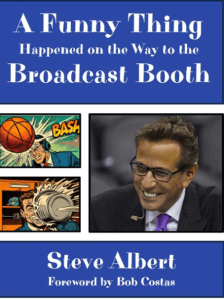
“Fighters were unlike any other professional athletes I had ever encountered,” Albert writes. “Many were products of incomprehensible backgrounds, fiercely tough neighborhoods, ghettos and, in some cases, jungles. Some got into the sport because they were bullied as children. For others, boxing was a means of survival. In many cases, it was an escape from a way of life that most people couldn’t even fathom.”
At one point, Steve recounts a ringside ritual that he followed when he was behind the microphone for Showtime Boxing: “I would precisely line up my trio of beverages – coffee, water, soda – on the far edge of the table closest to the ring apron. Perhaps the best advice I ever received from Ferdie [broadcast partner Ferdie Pacheco] was early on in my blow-by-blow career – ‘Always cover your coffee at ringside with an index card unless you like your coffee with cream, sugar, and blood.’”
Writing about the prelude to the infamous Holyfield-Tyson “bite fight,” Albert recalls, “I remember thinking that Tyson was going to do something unusual that night. I had this sinking feeling in my gut that he was going to pull something exceedingly out of the ordinary. His grousing about Holyfield’s head butts in the first fight added to my concern. [But] nobody could have foreseen what actually happened. Had I opened that broadcast with, ‘Folks, tonight I predict that Mike Tyson will bite off a chunk of Evander Holyfield’s ear,’ some fellas in white coats might have approached me and said, ‘Uh, Steve, could you come with us.'”
And then there’s my favorite line in the book: “I once asked a fighter if he was happily married,” Albert recounts. “He said, ‘Yes, but my wife’s not.'”
“All I ever wanted was to be a sportscaster,” Albert says in closing. “I didn’t always get it right, but I tried to do my job with honesty and integrity. For forty-five years, calling games was my life. I think it all worked out.”
Thomas Hauser’s email address is thomashauserwriter@gmail.com. His next book – The Most Honest Sport: Two More Years Inside Boxing – will be published this month and is available for preorder at:
https://www.amazon.com/Most-Honest-Sport-Inside-Boxing/dp/1955836329
In 2019, Hauser was selected for boxing’s highest honor – induction into the International Boxing Hall of Fame.
To comment on this story in the Fight Forum CLICK HERE
Featured Articles
Argentina’s Fernando Martinez Wins His Rematch with Kazuto Ioka
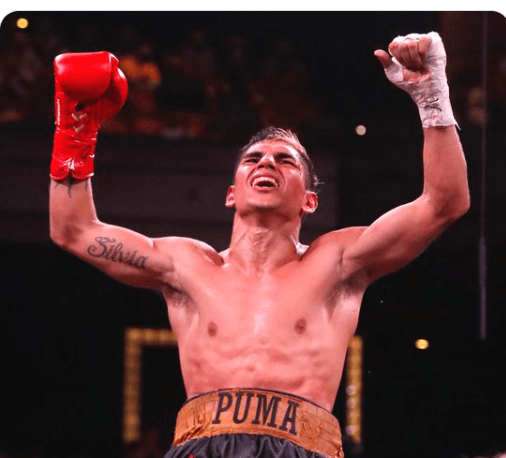
In an excellent fight climaxed by a furious 12th round, Argentina’s Fernando Daniel Martinez came off the deck to win his rematch with Kazuto Ioka and retain his piece of the world 115-pound title. The match was staged at Ioka’s familiar stomping grounds, the Ota-City General Gymnasium in Tokyo.
In their first meeting on July 7 of last year in Tokyo, Martinez was returned the winner on scores of 117-111, 116-112, and a bizarre 120-108. The rematch was slated for late December, but Martinez took ill a few hours before the weigh-in and the bout was postponed.
The 33-year-old Martinez, who came in sporting a 17-0 (9) record, was a 7-2 favorite to win the sequel, but there were plenty of reasons to favor Ioka, 36, aside from his home field advantage. The first Japanese male fighter to win world titles in four weight classes, Ioka was 3-0 in rematches and his long-time trainer Ismael Salas was on a nice roll. Salas was 2-0 last weekend in Times Square, having handled upset-maker Rolly Romero and Reito Tsutsumi who was making his pro debut.
But the fourth time was not a charm for Ioka (31-4-1) who seemingly pulled the fight out of the fire in round 10 when he pitched the Argentine to the canvas with a pair of left hooks, but then wasn’t able to capitalize on the momentum swing.
Martinez set a fast pace and had Ioka fighting off his back foot for much of the fight. Beginning in round seven, Martinez looked fatigued, but the Argentine was conserving his energy for the championship rounds. In the end, he won the bout on all three cards: 114-113, 116-112, 117-110.
Up next for Fernando Martinez may be a date with fellow unbeaten Jesse “Bam” Rodriguez, the lineal champion at 115. San Antonio’s Rodriguez is a huge favorite to keep his title when he defends against South Africa’s obscure Phumelela Cafu on July 19 in Frisco, Texas.
As for Ioka, had he won today’s rematch, that may have gotten him over the hump in so far as making it into the International Boxing Hall of Fame. True, winning titles in four weight classes is no great shakes when the bookends are only 10 pounds apart, but Ioka is still a worthy candidate.
To comment on this story in the Fight Forum CLICK HERE
-
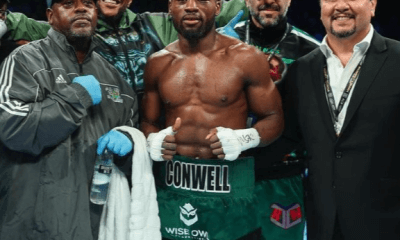
 Featured Articles4 weeks ago
Featured Articles4 weeks agoAvila Perspective, Chap. 322: Super Welterweight Week in SoCal
-
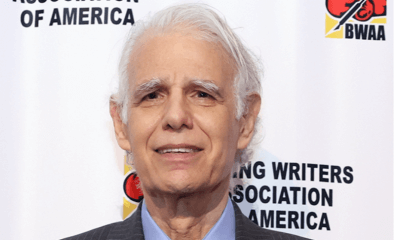
 Featured Articles4 weeks ago
Featured Articles4 weeks agoTSS Salutes Thomas Hauser and his Bernie Award Cohorts
-
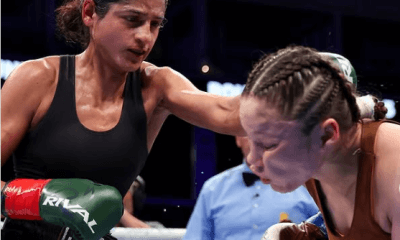
 Featured Articles4 weeks ago
Featured Articles4 weeks agoGabriela Fundora KOs Marilyn Badillo and Perez Upsets Conwell in Oceanside
-
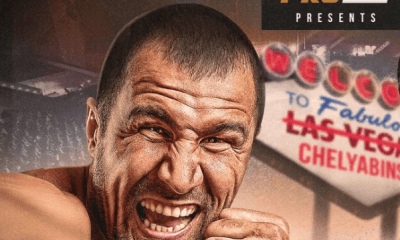
 Featured Articles4 weeks ago
Featured Articles4 weeks ago‘Krusher’ Kovalev Exits on a Winning Note: TKOs Artur Mann in his ‘Farewell Fight’
-

 Featured Articles3 weeks ago
Featured Articles3 weeks agoFloyd Mayweather has Another Phenom and his name is Curmel Moton
-
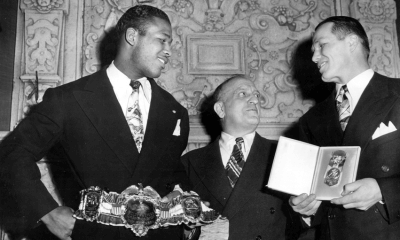
 Featured Articles4 weeks ago
Featured Articles4 weeks agoArne’s Almanac: The First Boxing Writers Assoc. of America Dinner Was Quite the Shindig
-
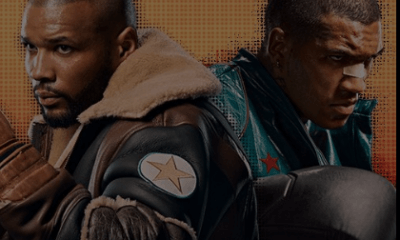
 Featured Articles3 weeks ago
Featured Articles3 weeks agoAvila Perspective, Chap. 323: Benn vs Eubank Family Feud and More
-
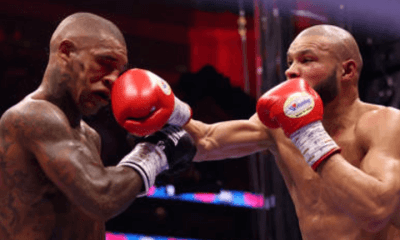
 Featured Articles3 weeks ago
Featured Articles3 weeks agoChris Eubank Jr Outlasts Conor Benn at Tottenham Hotspur Stadium















